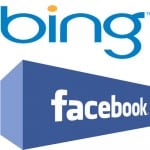 By Larry Sivitz
By Larry Sivitz
We at Seattle24X7 have a decidedly Northwest way of thinking about Facebook’s Graph Search that is both complimentary and, well, a bit hypercritical.
First, you can’t help but admire Facebook’s ambition. They have taken what began as a simple college student directory at Harvard and created the “Frankenweenie monster” of all Web portals.
Except Facebook isn’t really a portal. Compared to Google, the search engine that wants to whisk you on your way to your destination after clicking on an organic search listing (which happens around 82% of the time), or a paid search listing (which happens around 17% of the time), Facebook wants you to stop, hang out and spend lots of time, post your thoughts, upload a few photos, chat with friends, (“share, share, share”), and now something new, do some searching!
But what kind of searching exactly? Unlike Google, the “graph searching” you may do on Facebook won’t take you outside of Facebook’s “Walled Garden.” Rather you’ll land in somebody else’s Facebook flower patch. So, for instance, when you search on [Lasagna] you won’t find links to the World’s Best Lasagna Recipes, per say, you’ll find links to those of your friends who “Like” Lasagna, or who “Like” a particular Italian restaurant, or who, according to their Facebook Timeline, ate a heaping helping of lasagna in March of 2009.
Of, course if you or your friends happen to be a “Fan” of Chef Boyardee or Barilla Pasta or Maggianos restaurants, you might also find your way to a Lasagna “brand” Page, but we’ll come back to that.
The way Facebook puts it, now you can search for “Sushi restaurants that my friends have been to in Los Angeles,” or “TV shows my friends like.” “The Surveys says…”
How Graph Search Works
Here is SearchEngineLands take on Facebook’s New Seach:
• The search bar first returns the top search suggestions, including people, Pages, apps, places, groups, and suggested searches. People can search for things like restaurants near them, hotels in places they want to travel to, photos posted by Pages they like, or games that their friends like to play.
• These search suggestions take people to a unique results page. The results returned are based on factors that include information that has been shared by your business and the connections of the person searching.
• As has been the case for some time, Facebook may also make search suggestions in the search bar that then can trigger web searches. Web searches will display Bing results and Bing ads, similar to results on Bing.com.
• Pages and apps can still use sponsored results, which appear to people whether or not they have Graph Search (sponsored results have been globally available since August 2012).
 Can You Optimize for the New Facebook Graph Search?
Can You Optimize for the New Facebook Graph Search?
The answer appears to be “yes!” particularly if you have a Local Business. Guidance by SE Land’s Matt McGee.
• The name, category, vanity URL, and information you share in the “About” section all help people find your business and should be shared on Facebook.
• If you have a location or a local place Page, update your address to make sure you can appear as a result when someone is searching for a specific location.
• Focus on attracting the right fans to your Page and on giving your fans a reason to interact with your content on an ongoing basis.
What Local Business Owners Need To Know About Facebook Graph Search
Facebook Graph Search could eventually become a fairly effective local search/recommendations engine. Here are a couple things to know:
• Although it’s only available to a limited number of users at first, Facebook Graph Search will be offering local search from day one.
• Search results, Facebook says, will be created by a combination of information created/shared by the business (Pages) and connections of the person doing the search (friends, likes, check-ins, etc.).
• Having a Facebook Page for your business will surely help (a lot), but it’s not required — businesses may show up if customers or someone else has added them as a “place.”
That last point is important because it’s possible to be listed as a “place” in Facebook without having a Page. Larkin Building in Buffalo, NY, is one good example — if you click, you’ll notice more than 20 “likes” and 500+ check-ins for this place.
Facebook says that its new search bar will return “the top search suggestions, including people, Pages, apps, places, groups, and suggested searches” — notice how “Pages” and “places” are listed separately.
 The Facebook – Bing Connection
The Facebook – Bing Connection
When people want to search beyond Facebook, they will see web search results from Microsoft’s Bing with social context and additional information such as Facebook pages.
In fact, when you do a web search on Facebook, the new search results page features a two-column layout with Bing-powered web results appearing on the left-hand side overlaid with social information from Facebook including how many people like a given result. On the right hand side, you will see content from Facebook Pages and apps that are related to your search.
That’s a big win for Bing! It is a potentially interesting offering for Facebook. It’s a somewhat dubious win for you and me.
Why so cynical? For one thing, whatever shred of “privacy” you felt you had left is even more exposed under this scheme. It’s like the difference between having a curious little fact about you somewhere in your Timeline, and having Mark Zuckerberg hire private detectives to locate it.
My main problem with Facebook Graph Search is two-fold. To begin with, as Eli Pariser writes about in The Filter Bubble, confining search results to your inner circle of friends is like living “inside a bubble.” It’s a bit of an “echo chamber.” I like sushi, but i’m not sure my friends have the same discerning pallette I do. Fact is, I’m looking for a more worldy view, and a more diverse range of viewpoints than the usual gang of idiots I hang around with.
The other irksome thing to me is the business model. I’ve started to think of Facebook as the “Evil Twin of Google Adsense.”
With Google AdSense, Google rewards content owners by placing advertising on their pages and when clicks occur, the content owners get a cut of the ad revenue. With Facebook advertising, the popularity of your pages, after all of your hard work, lets Facebook profit by serving ads to your visitors. But all the money goes to Zuck and the stockholders. You don’t see a pretty penny. Is that fair? Wait, just a sec — let me graph search my friends to see how many think thats fair!
Oh, and one more thing that may get your hackles up.
A month before unveiling Graph Search, Facebook did a cuioous thing. It changed its privacy policy to remove the ability to opt out of search results.
When you hide things on your timeline, like posts or connections, it means those things will not appear on your timeline. But, remember, anyone in the audience of those posts or who can see a connection may still see it elsewhere, like on someone else’s timeline or in search results.
Viva’ la Revolucion’!
Facebook Graph Search is in limited beta and will be rolling out gradually. [24×7]

















